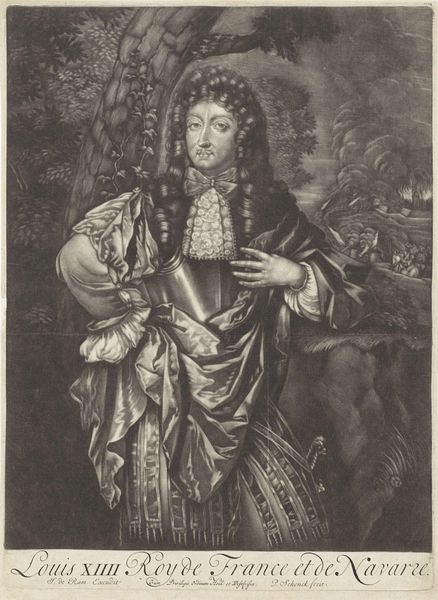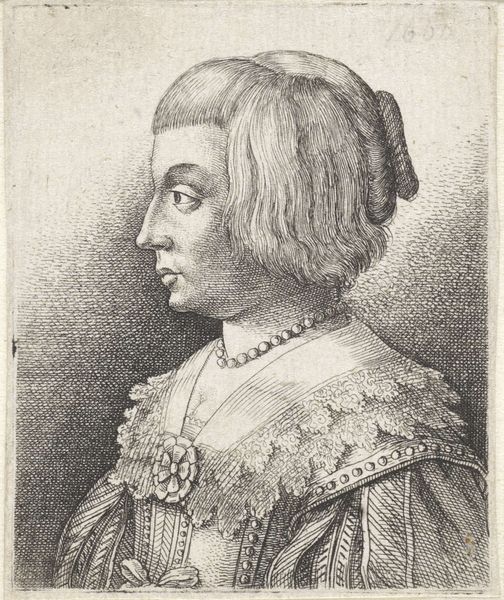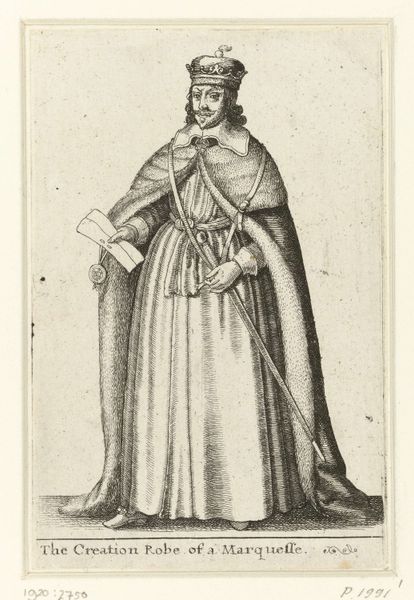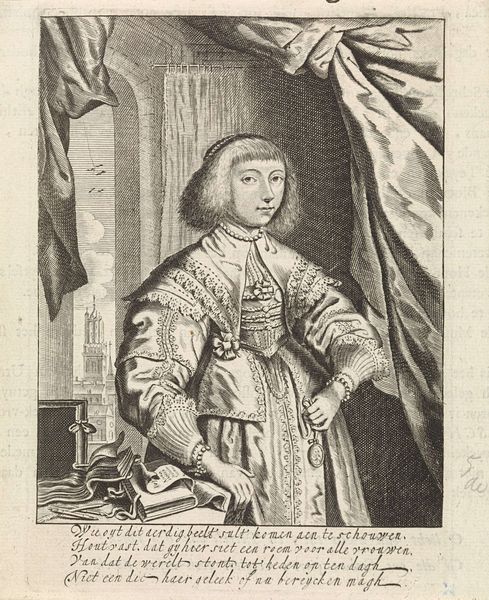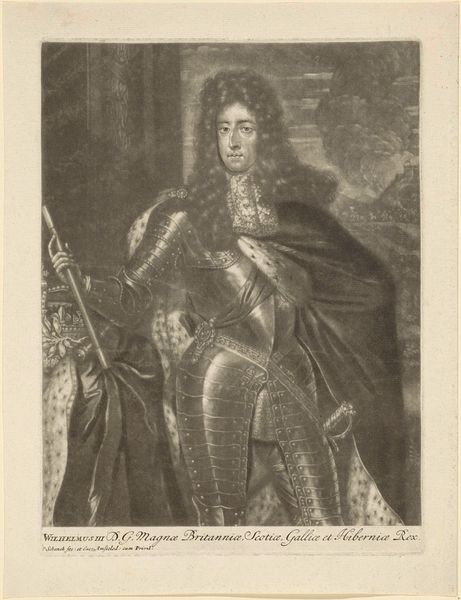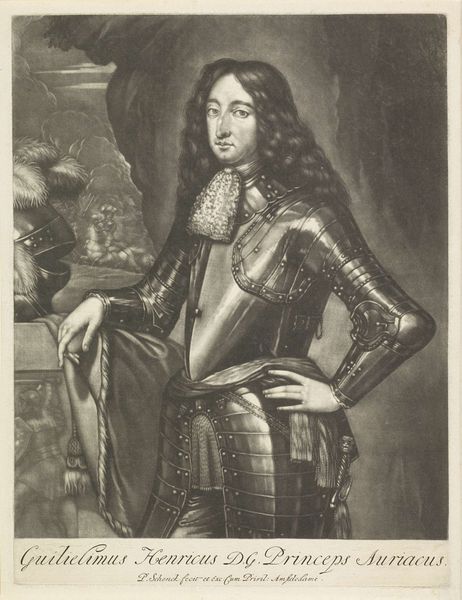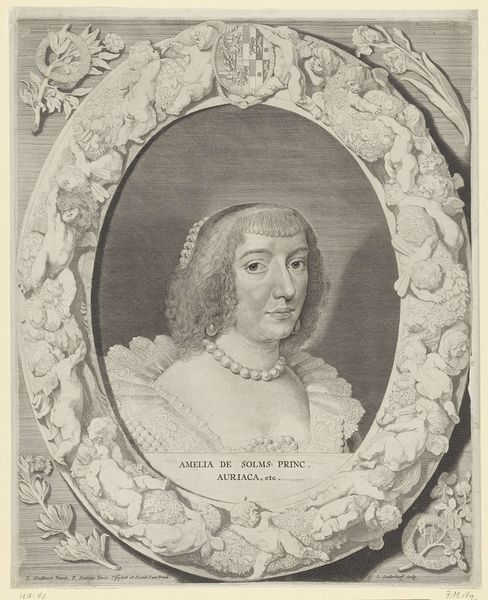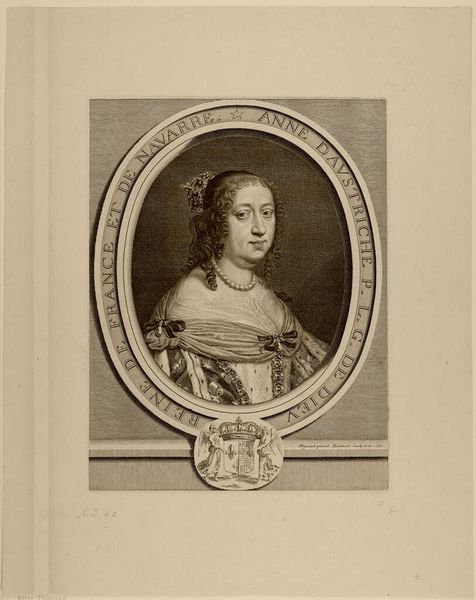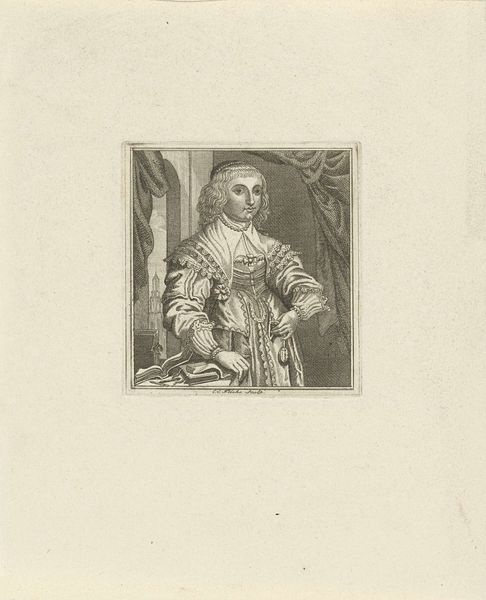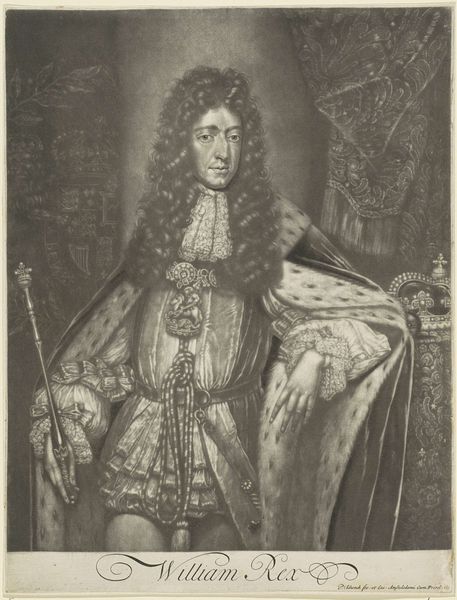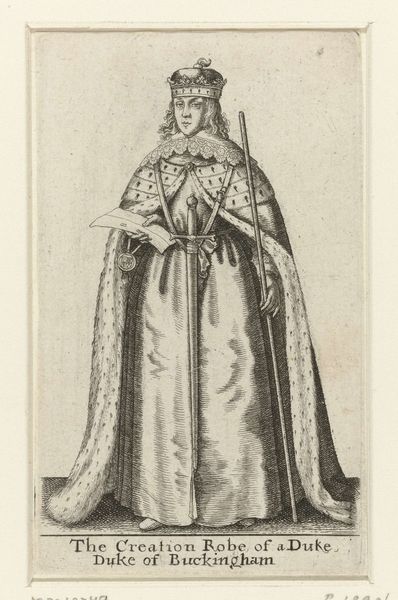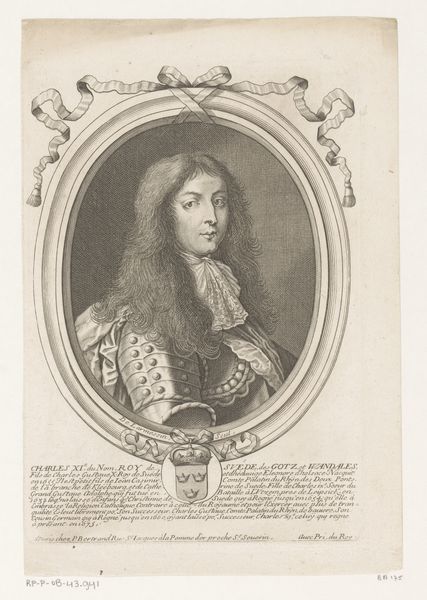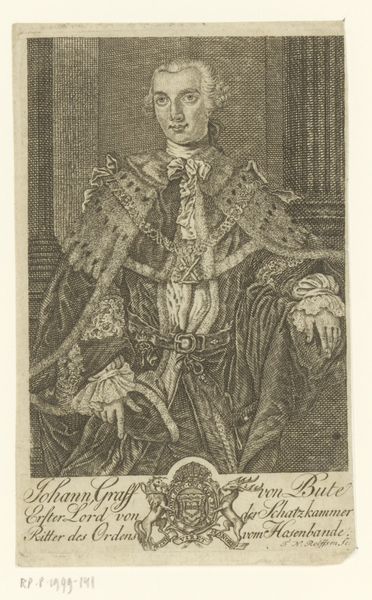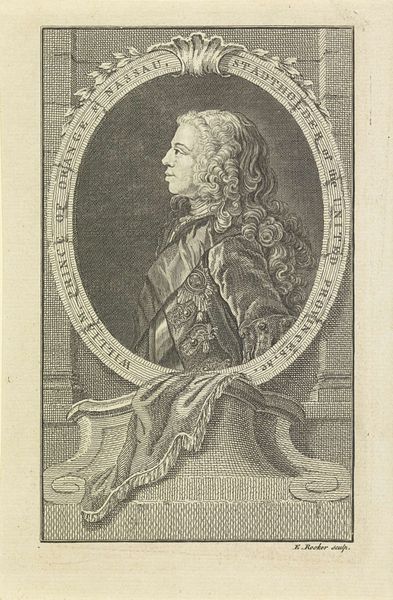
engraving
#
portrait
#
baroque
#
old engraving style
#
figuration
#
history-painting
#
engraving
Dimensions: height 318 mm, width 223 mm
Copyright: Rijks Museum: Open Domain
Hendrik Bary created this portrait of Johann Friedrich, Count of Waldstein, in the Netherlands, sometime around the later 17th century. It's an etching, a printmaking technique that was increasingly popular as a way to disseminate images. Note the trappings of status displayed here. Waldstein’s fur-lined robe speaks to his wealth and position within the European aristocracy. Positioned next to a table draped with heavy cloth, he extends his hand in a gesture of command and authority. This carefully constructed image broadcasts Waldstein's social standing in a society defined by inherited privilege. Prints like these served to reinforce a hierarchical social order, circulating images of power and prestige among a wide audience. They offer us a glimpse into the visual culture of the Dutch Golden Age and the ways in which art played a role in shaping social perceptions. To understand this image fully, we can turn to sources like period documents and social histories to uncover the complex interplay between art and society.
Comments
No comments
Be the first to comment and join the conversation on the ultimate creative platform.
